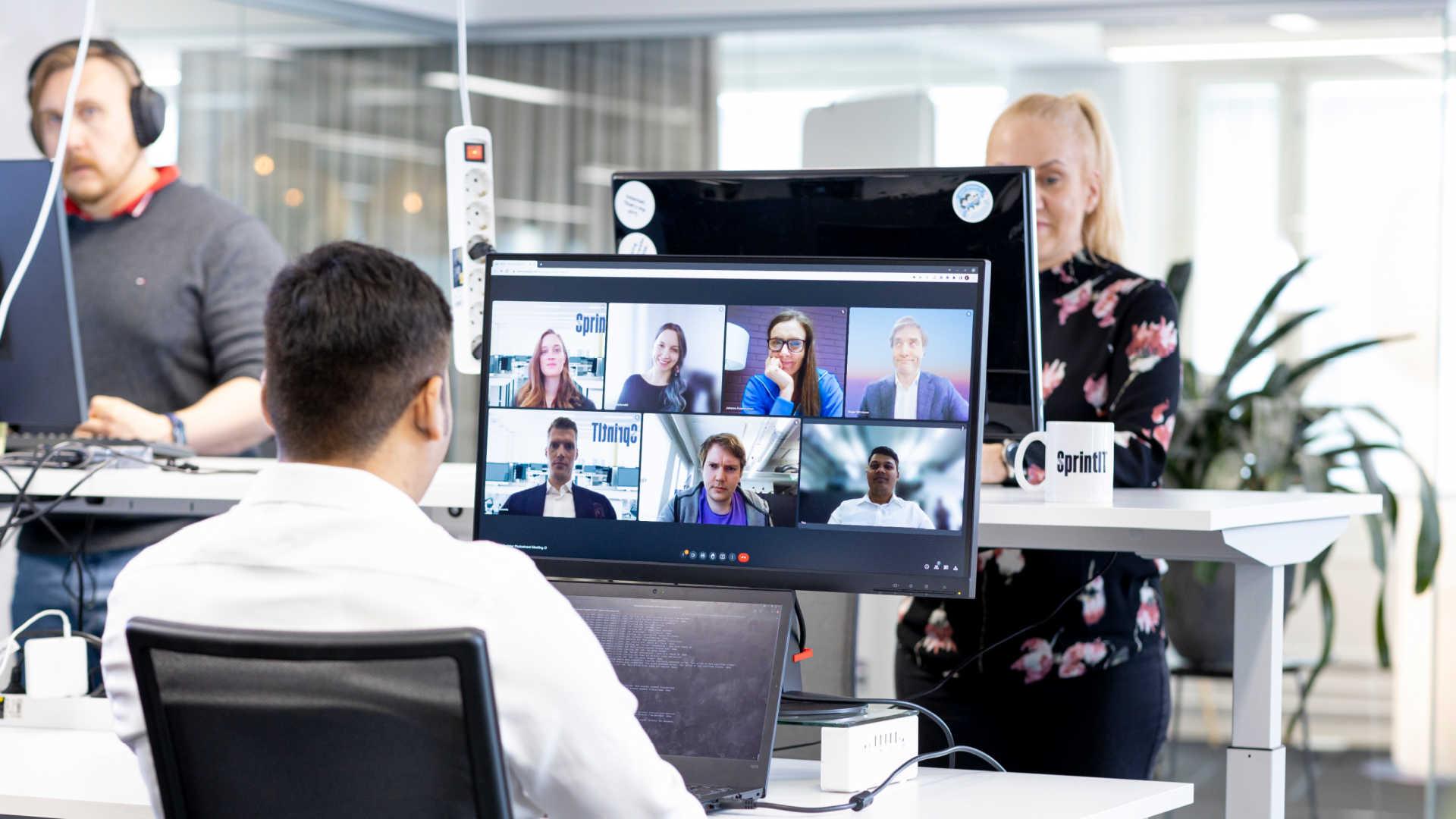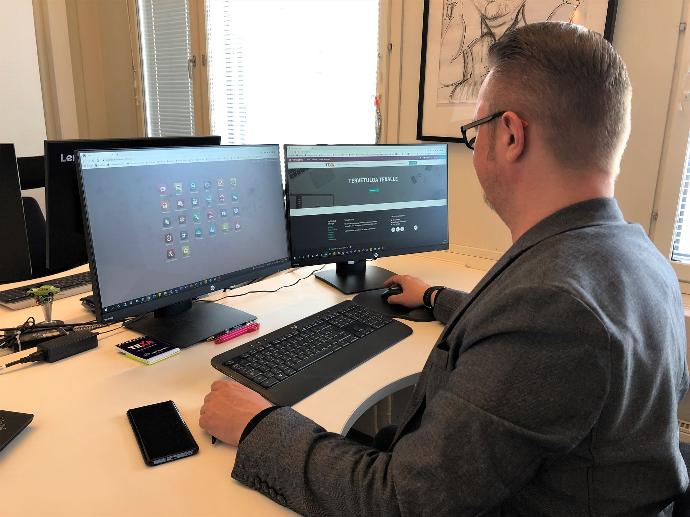A modern enterprise resource planning (ERP) system can be implemented successfully with several different strategies. The choice of the best method depends on the needs of the company and the abilities of the personnel.
In this blog post, we will briefly go through different implementation strategies and what kind of capabilities the different methods require from your company. We help you evaluate what strategy is the best for your company.
We look at the issue primarily from the Odoo-point-of-view. Of course, the same basic principles also apply to any other open source ERP system.
As the name suggests, open source code makes it possible for anyone to develop functions for the software in question. Open source brings flexibility and cost-effectiveness to software development, and its advantages have already been recognized in the EU. In ERP systems based on open source, you are not tied to one supplier, but there can be several partners, and if necessary, a change of partner is possible.
What are your capabilities?
When evaluating the most cost-effective or inexpensive way to implement an ERP system for your company, it is important to evaluate the total costs of the software and the project.
The chosen method is influenced by e.g.:
- The level of IT competence of the company's personnel
- The experience and know-how of the personnel in the implementation of an ERP system
- How many people's working time can be reserved for the project?
- What kind of special needs does the company have regarding the functionalities (Special needs affect the possible development requirements, i.e. how much customized code is needed).
- The total budget reserved for the project and the investment capacity


Free ERP, is there such a thing?
You would need to be quite an experienced expert to take care of it all by yourself and with a minimum budget, but rest assured, it is possible!
A completely do-it-yourself ERP project is suitable for companies whose operations are small and the company's business processes are simple and common.
If you don't count the use of your own time, you can basically use the open source Odoo completely independently and even almost free of charge (Odoo Community). But if you dream of a "free ERP", it is good for you to have strong IT skills and also experience with ERP systems. This path is chosen by those who have project wizards familiar with IT matters on their payroll - or those with time and enthusiasm, and possibly people who are passionate about coding.
In the end of the day, self-deployment can be a suitable solution for some companies. The Odoo system, which is based on moderate licence fees, can be downloaded online by anyone.
Here you can register Odoo for a free 15-day trial
Hybrid model
Manage and lead the project yourself, let a partner help with tricky challenges!
Some companies prefer to do most of the implementation work themselves. Small companies that do not have the ability or desire to invest in a project or that have a strong culture of experimentation and a desire to learn by doing end up with this type of solution.

In the hybrid model, you manage the project yourself and do most of the work yourself. For that, you need 1) IT know-how 2) basic knowledge of Odoo’s functionalities and 3) experience in managing system projects in general.
You need partner’s expertise for tasks that require in-depth knowledge of the Odoo system, such as evaluating and installing the functionality of modules produced by third parties, implementing integrations or customizing own functionalities.
If you feel that you can manage Odoo implementation independently, and you only need help in tight spots, the hybrid model could be an interesting option for your company.
A full partnership
The most flexible and probably the most cost-effective way to implement Odoo!
Most companies aim for the most cost-effective, fast and effortless way to implement an ERP system. This is best done with an experienced partner.
With a partner, you save time and money because you avoid the most typical stumbling blocks and pitfalls. However, this model requires investment capacity.
An experienced partner knows how to choose the most cost-effective and time-saving implementation method. An experienced Odoo partner also has working contacts and a good understanding of utilizing Odoo's global partner network. The possibility to utilize this network is quite a trump card itself. What your company needs has probably already been solved once on the other side of the globe. This way you don't have to reinvent the wheel!
It is natural that companies do not have the human resources or solid routines to carry out an ERP project. A project like that doesn't come along every day. By working with a partner, you avoid the time-consuming and sometimes risky recruitment of temporary project staff, among other things.

A successful ERP project always requires close cooperation between the customer and the supplier. At the beginning of the project, areas of responsibility are agreed upon, which are divided according to the needs and wishes of the client company. Most of the time, the partner is responsible for the overall management of the Odoo project, the implementation of the system and the further development and support functions of the system. The Odoo partner is naturally also responsible for the work related to the installation of the system, the implementation of the necessary integrations, and the customization and testing of possible functionalities.
In most cases, it makes the most sense for a company to focus its own resources on refining its own core processes and engaging and training its staff. Change management and motivating the staff is one of the most important tasks in order for the ERP investment to be profitable for the company in the long term.
If you are interested in implementing an ERP project with an experienced partner, please contact us!

Customer story: Odoo enables TEXA to flexibly promote development projects
The growing TEXA needed to renew the old and partly rigid systems. With the introduction of Odoo, internal development projects will also be able to proceed smoothly in the future.
"Our project was managed with skill. Project Manager Henri was strict and tough enough when needed. He made sure that we didn't procrastinate or deviate from the original plan and that we did the necessary things on time. We always knew where we were going and what was coming next. Henri's proper communication in our direction was worth its weight in gold. He made sure that things went smoothly,"
Operational Director, Marko Heiskanen
Effectively implement Odoo with our help!
Let's find out together what is the best strategy for your ERP project.
